China is large enough to rival the world’s best and brightest in terms of prominence. From the dry, sandy deserts of Central Asia to the warm, sandy beaches of the Pacific Ocean, this nation is huge and fascinating in every way. China, which stretches from north to south, is located between the grassy plains of Mongolia and the forested mountains of Southeast Asia.
The People’s Republic of China is the most populated and the fourth-largest nation in the world by land area. It also has some of the world’s most impressive metropolises. The bustling food courts of historic Shanghai and the neon-lit streets of Beijing are just a few of the many attractions in this stunning nation. The Great Wall, the tombs of Xi’an, and the charming hill villages of rural Yunnan are just a few of the many UNESCO World Heritage monuments and cultural symbols that make China a must-see destination for history buffs.
1. Shanghai
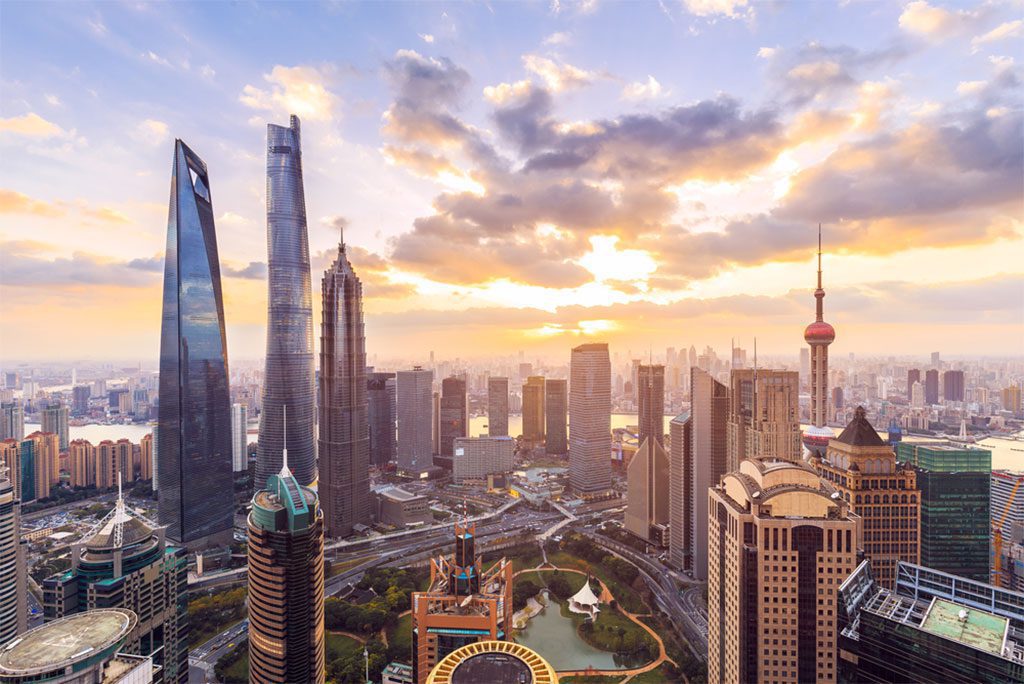
A stunning view of the Shanghai skyline during sunset. Image source: Eugene Lu/Shutterstock.com
More than 24 million people call Shanghai, China, home, making it one of the world’s biggest cities.
The Song and Ming dynasties saw steady growth in the city’s prominence, but it was during the Qing that it really flourished, becoming the Yangtze River Delta’s premier commercial port.
Present-day Shanghai is not drastically different from its historical counterpart; the glittering skyscrapers along the Bund attest to the city’s trade prowess.
The French Concession preserves its history in the form of several antique buildings and canals lined with trees.
2. Beijing
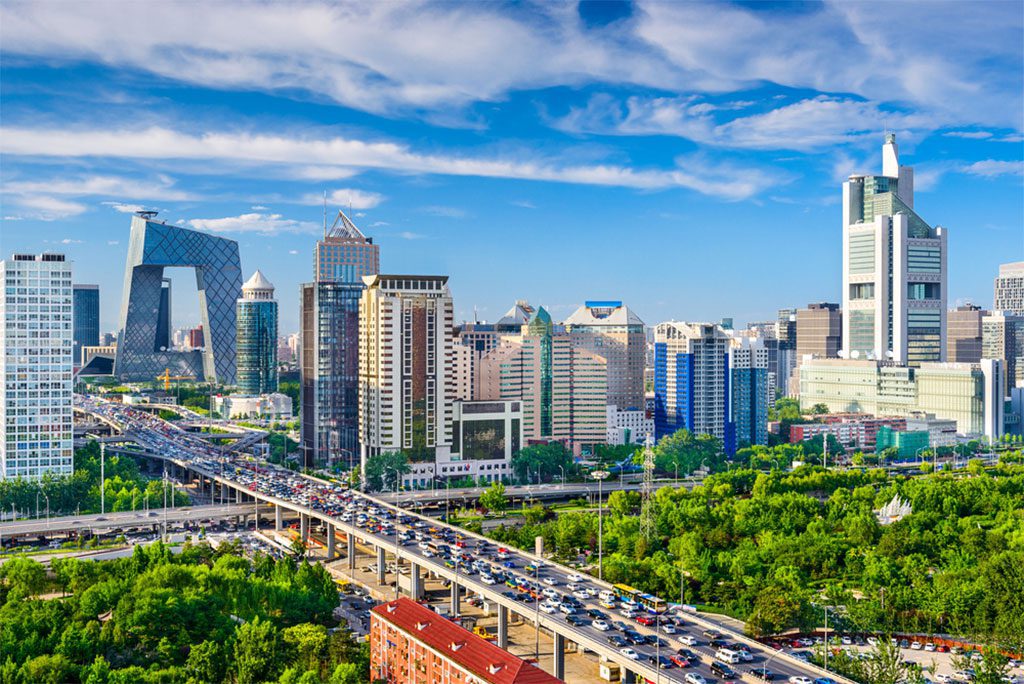
A panoramic view of Beijing’s central business district. Image source: ESB Professional/Shutterstock.com
China’s capital, Beijing, is a typical major metropolis with a never-ending nightlife.
It is the political hub of the nation and home to renowned locations like Tiananmen Square, but with a population of over 21 million, it is somewhat smaller than Shanghai.
The Forbidden City is a major tourist attraction; it is a UNESCO World Heritage Site and the former residence of Chinese emperors during the Ming and Qing dynasties. It is filled with exquisite porcelain, paintings, fountains, and thrones.
Also in Beijing is the National Museum of China, which is often considered to be the best museum in the whole of China.
3. Hong Kong
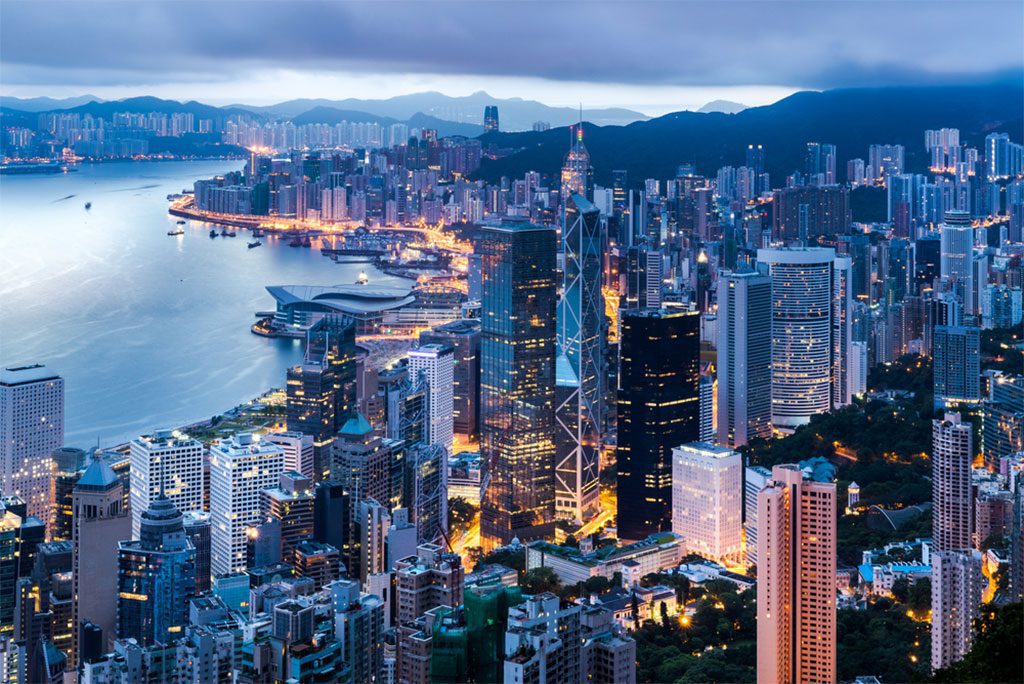
A panoramic view of the Hong Kong city skyline from The Peak at twilight. Image source: EarnestTse/Shutterstock.com
The fact that residents of this Special Administrative Region of China may feel offended to be included on a list with cities from the mainland reveals how different this SAR is from the People’s Republic.
As a global financial and trade hub, the area enjoys (relative) independence from China on the political and economic fronts.
Tram rides up Victoria Peak, exploring the colourful marketplaces of Kowloon, and amusement parks on Lantau Island are just a few of the exciting things to do in Hong Kong.
4. Guilin
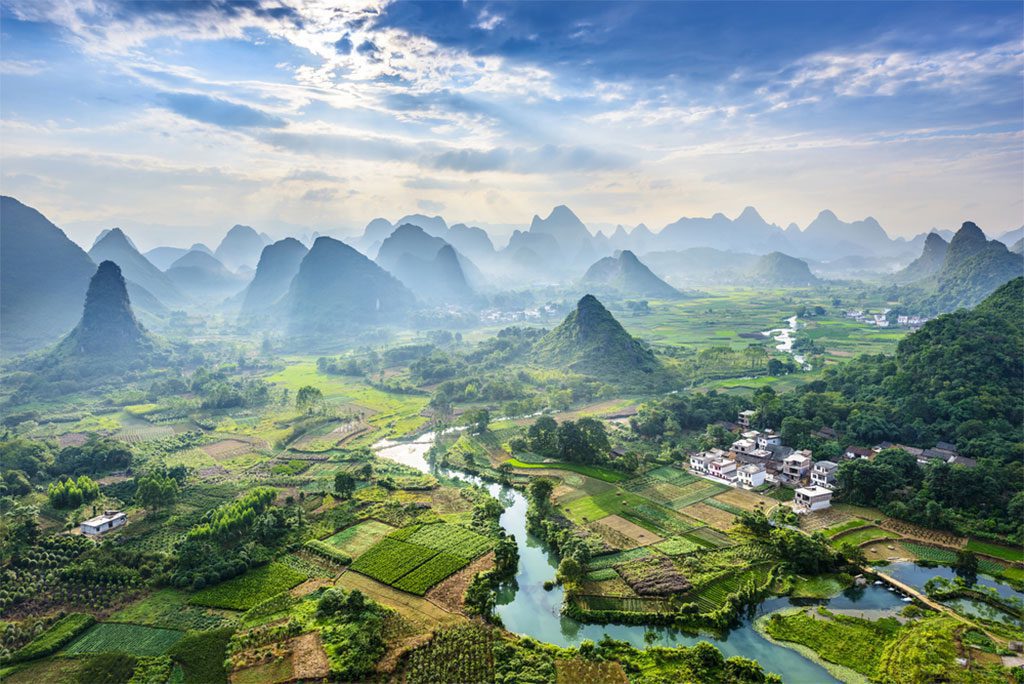
A stunning view of the Li River and Karst mountains in Guilin, China. Image source: aphotostory/Shutterstock.com
For those in search of excitement in the middle of alien-looking karst mountains, Guilin is the place to be.
Parks speckled with gingkos can be found all around Pagoda Hill in Guilin, and the city’s old streets, which span the mighty Li River, are also well known.
Explore the province of Guangxi and you’ll come across mist-covered mountains, caves, grottos, and rocky, holy summits.
5. Chengdu
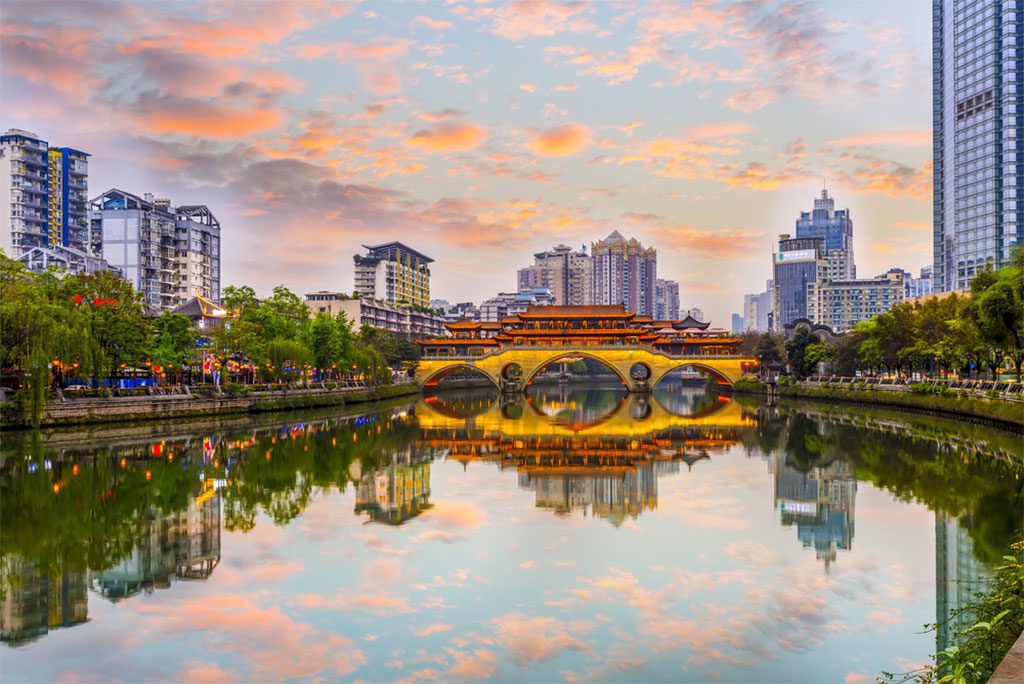
A panoramic view of Chengdu’s Jinjiang Scenery. Image source: 4045/Shutterstock.com
Chengdu, China, is well-known to tourists for one reason only: its pandas.
If you want to get up close to these incredible animals, the Chengdu Panda Research Base is the place to go. The base is a research institution rather than a zoo, so you can be certain that your visit will help with the pandas’ care and breeding efforts.
You may also enjoy other aspects of Chengdu, such as People’s Park, which is known for its street performers, in addition to seeing the city’s famed pandas.
Two more noteworthy locations are Jinli Historic Street, famous for its Qing Dynasty architecture, and the Kuanzhaixiangzi District, with its array of wonderful ancient teahouses.
6. Guangzhou
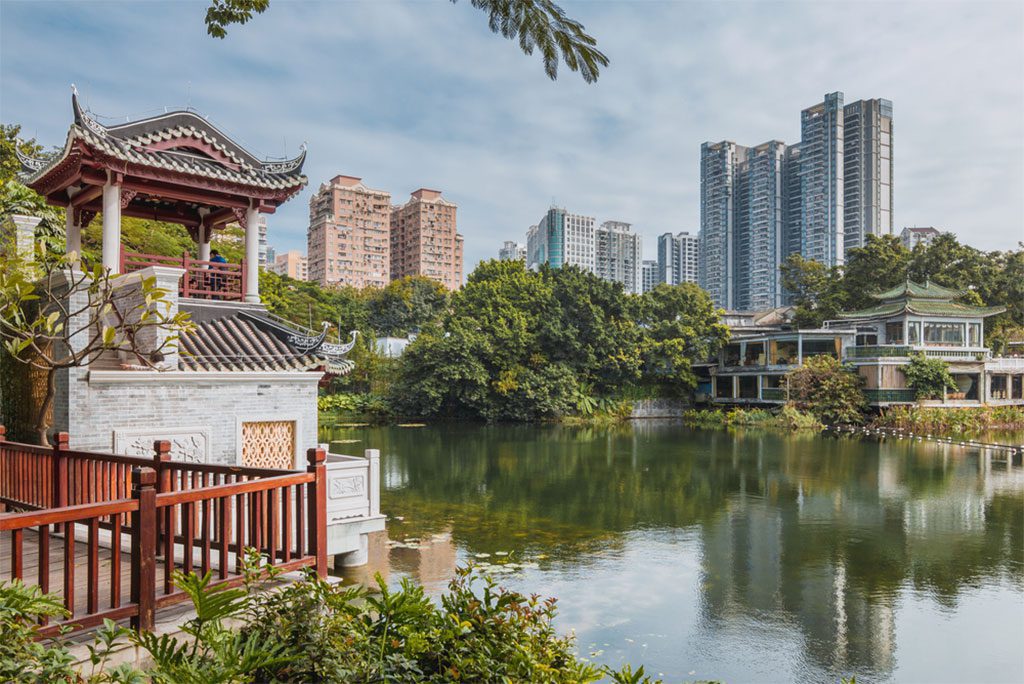
A beautiful classical-style garden in Guangzhou, China. Image source: GuoZhongHua/Shutterstock.com
Guangzhou, a metropolis that has grown exponentially in recent years, epitomises the image of a contemporary, neon-lit China.
The downtown portion of this city, which likewise stands on the Pearl River, is a dazzling spectacle of skyscrapers and gleaming structures competing for space.
You may locate Qing edifices at the Xiguan Residence, as well as several instances of ancient Canton structures, making the architecture here some of the most varied in China.
It’s combined with Anglo-style dwellings that bring to mind rural England in areas like Shamian Island.
Even more impressive is the abundance of museums in Guangzhou, such as the Mausoleum of King Zhao Mo, which houses items from the city’s early history (some of which date back 2,100 years).
7. Macau
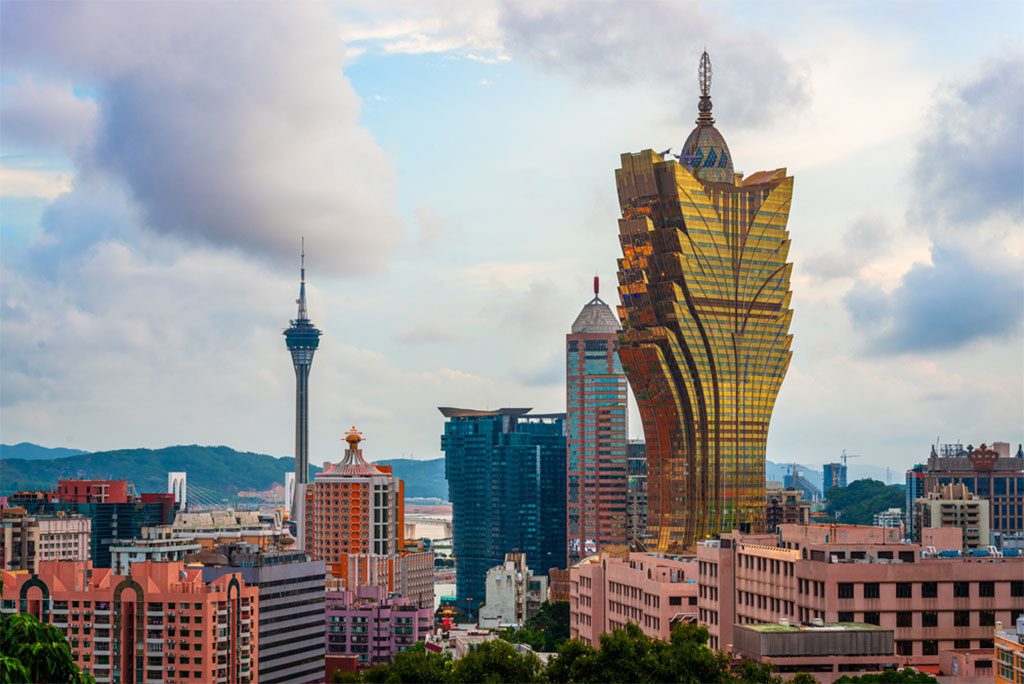
A stunning view of Macau’s city skyline with resort casinos. Image source: Sean Pavone/Shutterstock.com
Millions of people travel from mainland China to visit Macau each year for the dazzling lights, glamour, glamour, and gaming.
You may visit some of the largest brands in the casino industry, such as the MGM Grand and the Venetian, and the primary attractions are the click of poker chips and the expansive gaming halls.
However, if you want to experience a different side of Macau besides its casinos, you may do so by seeing the city’s colonial-era Portuguese architecture and other sights.
The town’s fort, cathedrals, and Baroque mansions are all well-known landmarks.
Coloane and Taipa’s coastal regions are ideal getaways from the island’s busier tourist hotspots.
8. Yangshuo
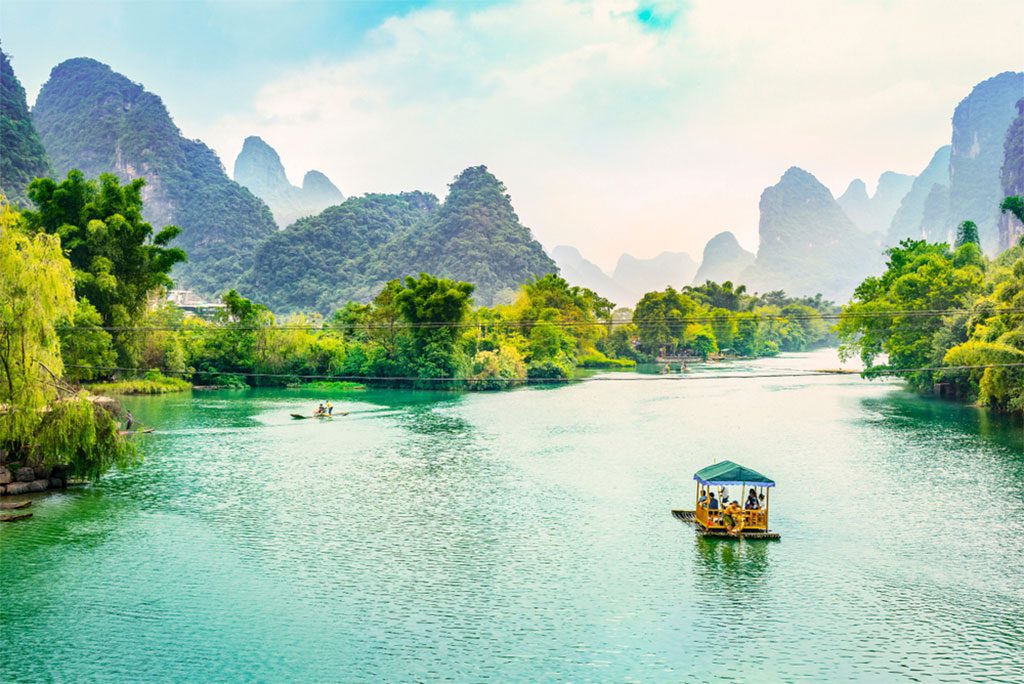
A panoramic view of the beautiful landscape of Yangshuo, Guilin, Guangxi, China. Image source: aphotostory/Shutterstock.com
The city of Yangshuo is stunning, thanks to its landscape of karst peaks that seem like needles.
The Yangi-Xingping Scenic Area and the Li River flow leisurely through this city in southern Guangxi Province.
So, you can expect rounded mountains and sculpted mountain ranges that are great for hiking and climbing, especially in the Yulong River Valley.
To really immerse oneself in Chinese culture, you may also attend traditional martial arts or Chinese cookery training in Yangshuo proper.
9. Xi’an
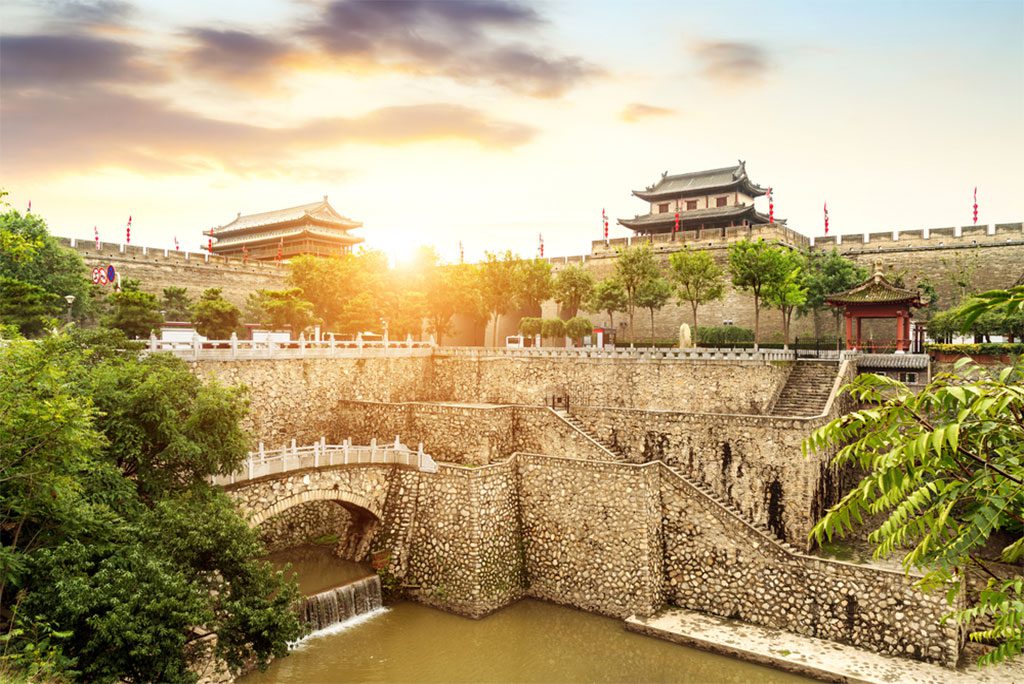
A view of the ancient city wall and moat in Xi’an, China. Image source: gyn9037/Shutterstock.com
It is at Xi’an, one of China’s four ancient capitals, where millennia of Chinese culture and history converge.
The terracotta warriors and horses that guarded the tomb of Emperor Qin Shi Huang in ancient China are a well-known cultural icon of the region and a UNESCO World Heritage Site in their own right.
In addition to the terracotta warriors, Xi’an is also famous for its 13-kilometer long city walls, which are the longest in the world. The city is also home to several mosques and Taoist temples, which attest to the city’s diversity as a result of its location along the Silk Road.
10. Jiuzhaigou
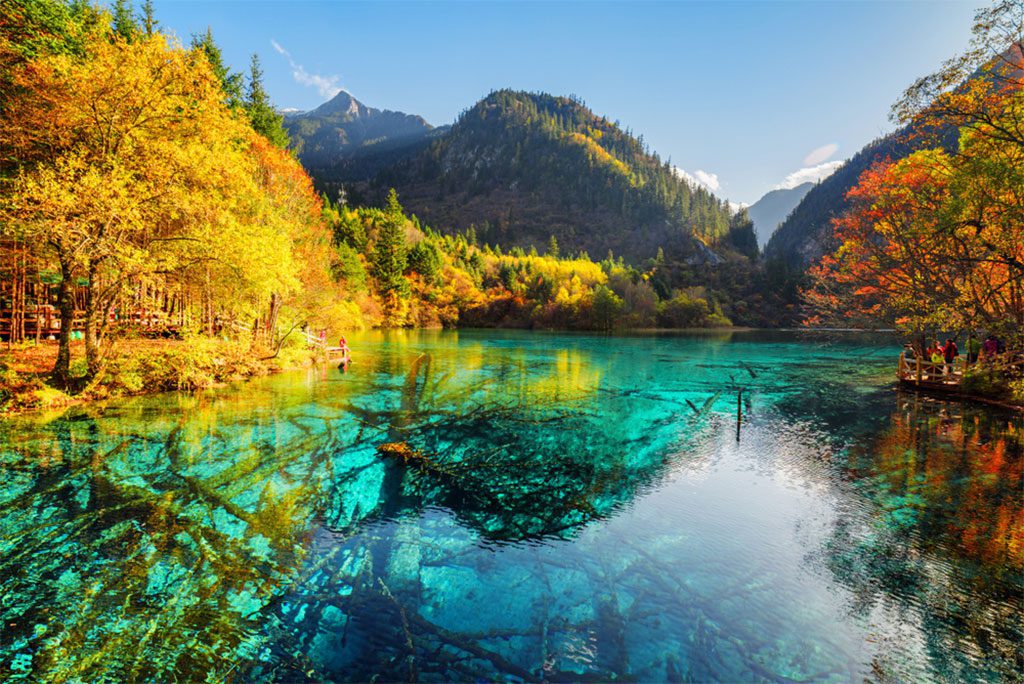
A breathtaking view of the Five Flower Lake among fall woods in Jiuzhaigou nature reserve. Image source: Efired/Shutterstock.com
Mountain lakes in the beautiful Jiuzhaigou valley of Sichuan have given the region its trademark turquoise blue and green colours.
A visit to this area is highly recommended for anybody with an interest in hiking or climbing, especially if you plan on exploring the area’s highlights, such as the pristine Long Lake and the stunning Pearl Shoal Waterfall.
The Zharu Buddhist Monastery and the rugged Nuorilang Peaks are two other local attractions.
11. Hangzhou
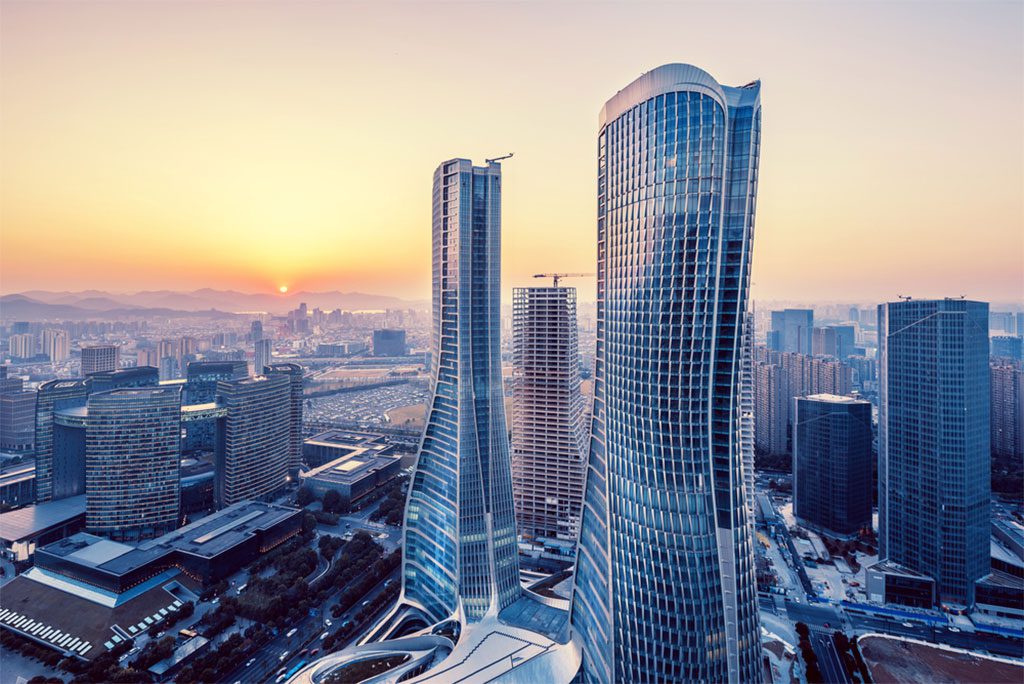
A stunning view of modern buildings in midtown Hangzhou New City at sunrise. Image source: Zhu Difeng/Shutterstock.com
Hangzhou, located near the mouth of the Yangtze River Delta, has been a major commercial centre for centuries.
After years of development, the city is currently home to almost 10 million people.
The West Lake, the Broken Bridge, the Qing Dynasty Mid-Lake Pavilion, and the pagodas of the Lesser Yingzhou Isle are just a few of the historical riches and cultural monuments that bring tourists to the city.
12. Kashgar
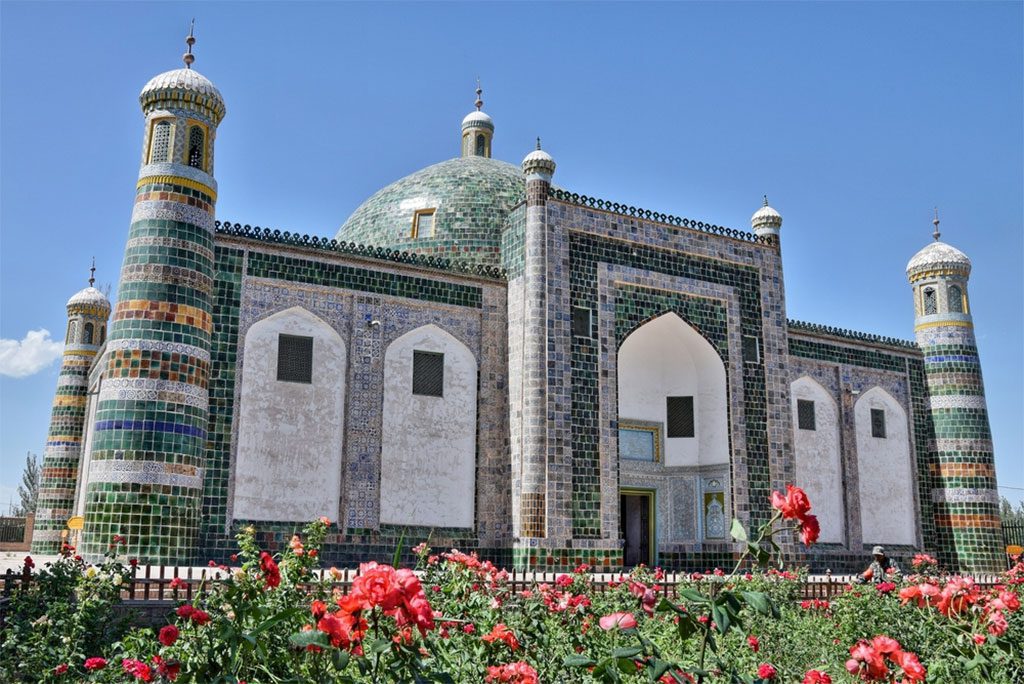
The holy Afaq Khoja Mausoleum, the holiest Muslim site near Kashgar in Xinjiang Uighur Autonomous Region of China. Image source: Lao Ma/Shutterstock.com
The far western Chinese city of Kashgar is a notable exception to the country’s typical Chinese vibe.
After falling to the Kushan Empire, this area adopted the bulbous Mughal architecture and culture of neighbouring Afghanistan.
13. Kunming
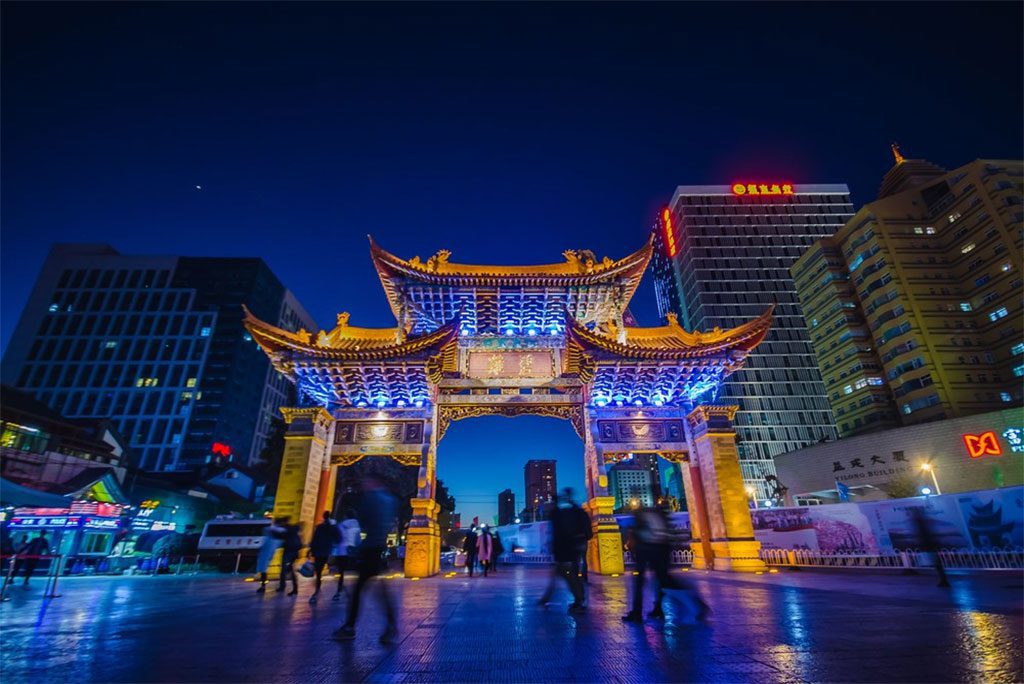
Jade Rooster at Mabi Chicken Square in Kunming. Image source: Woraatep Suppavas/Shutterstock.com
Known as the “City of Eternal Spring,” the city of Kunming is about 2,000 metres above sea level and is surrounded by towering hills. Cooler than lower-lying areas of Yunnan because of its elevation, this region is also home to important cultural monuments like the 1,200-year-old Yuantong Temple.
The Stone Forest Reserve, which resembles a chain of jagged mountains, and the Daguan Pavilion are two other must-sees.
14. Hainan
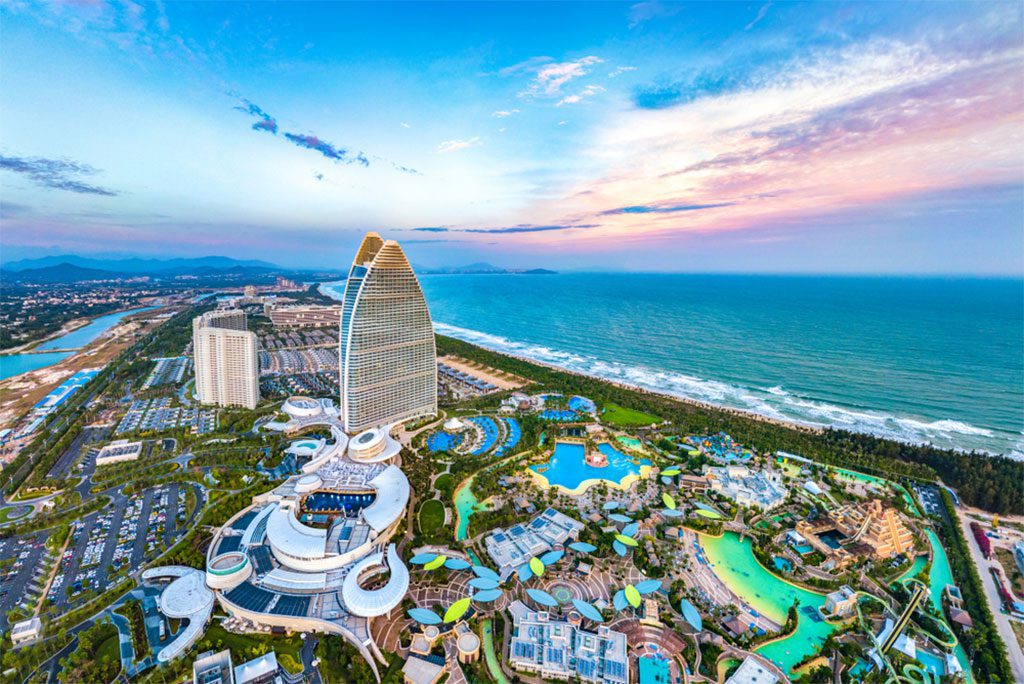
A picturesque view of Haitang Bay in Sanya, Hainan Province, China. Image source: DreamArchitect/Shutterstock.com
Although it is part of China, Hainan is a protruding island in the South China Sea and has a climate more akin to Southeast Asia than the rest of the nation.
Some of China’s most beautiful beaches may be found in this region, along with tropical woods and palm trees.
Sanya Beach is one of the nicest of them, and so are the hidden inlets of Monkey Island, which, as the name implies, is home to a large population of monkeys.
15. Harbin
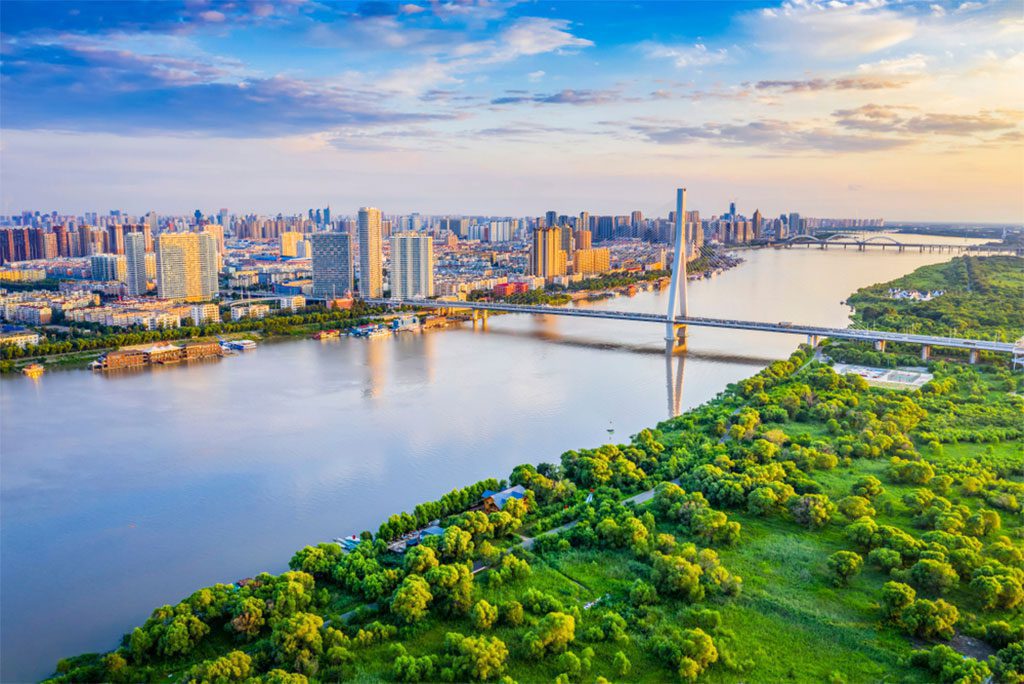
The breathtaking skyline of Harbin with Songpu Bridge and Songhua River. Image source: aphotostory/Shutterstock.com
Snowy cobblestone lanes and mosques with onion domes give Harbin a very non-Chinese vibe.
Many Russians came to this area in 1917, which had a significant impact. The city’s Russian District is worth a look, as are the powerful vodka and Siberian tiger viewing opportunities available at surrounding wildlife areas.
Don’t miss your opportunity to hit the slopes at Deer Flats if you like skiing.


